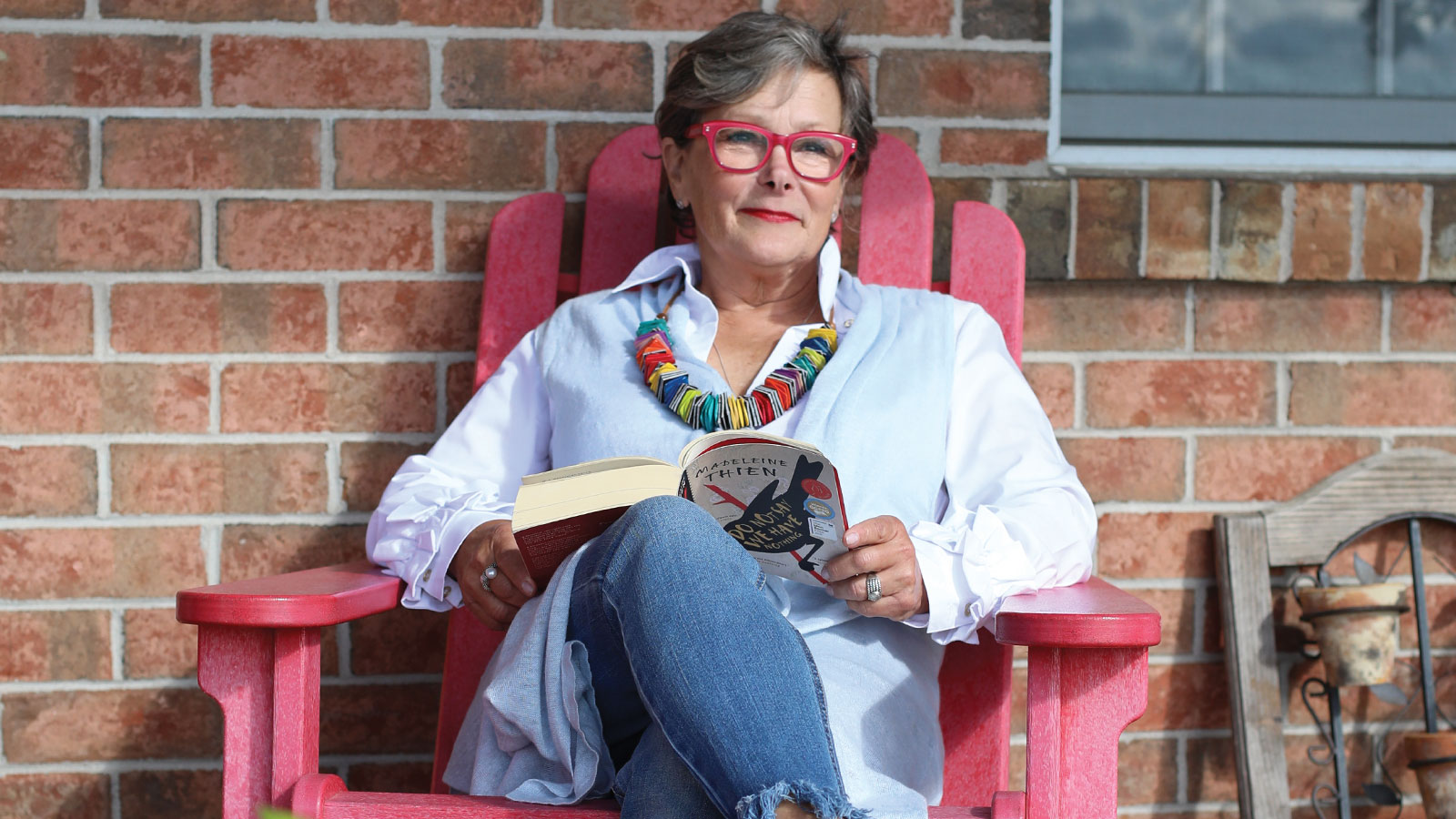By February of 2018, Charlotte had a bone scan–and an answer. She didn’t have hip problems, she had stage 4 non-Hodgkin's lymphoma. And to make matters worse, she had a genetic mutation known as “double-hit lymphoma” which resisted chemotherapy.
Given the dire prognosis, Charlotte was unable to qualify for a stem-cell transplant and by October, was told that her only option was to ease the pain with palliative radiation therapy. Charlotte was given just six months to a year to live and began organizing the end of her life. Charlotte remembers her trial coordinator nurse, Daniel, saying to her, “Don’t worry, Charlotte. Dr. Kuruvilla will find something.”“The tumour would just grow and shrink and shrink and grow,” she said.
Dr. John Kuruvilla was Charlotte’s primary hematologist, and Daniel was right. He did find something. He presented Charlotte with the option of CAR-T cell therapy (Chimeric Antigen Receptor), a revolutionary new therapy that was still in trial phases in Canada. She was surprised she qualified, but said, “if you think it will help, I’ll try anything.”
"It was a rough go in the beginning, and I didn’t know how to navigate the disease, but once I learned to trust the team and the treatment, I got through it.”

Charlotte doesn’t remember much about that final treatment because it started a “cytokine strom,” an immune system response that left her in and out of consciousness for close to five days, but she does remember the persistence of her children. “They created a rotating schedule, between the three of them, and never left me alone for one second,” Charlotte said.
On September 24, 2020 Charlotte Grad celebrated two years in remission and is thrilled to be back outside hiking with her loving, devoted partner and her “old hip.”
Read next

